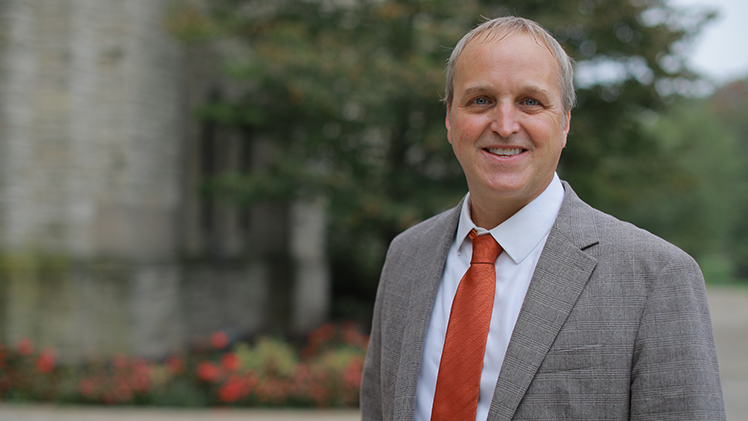Afraid of going to the dentist? You’re not alone.
An estimated 40 million Americans have avoided oral care because of fear and anxiety about getting in the dentist’s chair.
“It can be a real problem,” said Dr. Andrew Geers, a professor in The University of Toledo’s Department of Psychology who studies how psychological factors can influence the decisions people make about their medical care. “Not only do they push it off, but when they do go in it’s a much more negative experience. It can be a very vicious cycle.”
Geers wants to know why those phobias take root — and what can be done to stop them from becoming so engrained that they affect an individual’s oral health.

Dr. Andrew Geers, a professor in UToledo’s Department of Psychology, studies how psychological factors can influence decisions people make about their medical care.
The UToledo researcher is partnering with a colleague at University of Texas Rio Grande Valley, Dr. Laura Seligman, to lead a new study funded by the National Institute of Dental & Craniofacial Research of the National Institutes of Health aimed at providing those answers.
While few people relish a dental appointment, researchers are most focused on individuals whose anxiety goes way beyond a few pre-appointment jitters.
“It’s understandable that most people have trepidation about going to the dentist. You have people poking at your mouth, you may feel a loss of control sitting in the chair. That’s not unusual,” Geers said. “It gets to be a concern — and what we’re most interested in here — is when it leads to not following recommended dental health behaviors.”
The study’s first focus is to build a more scientific understanding of how fears and anxieties are learned in a new environment and how quickly those associations develop.
Using virtual reality simulations, researchers will track participants as they encounter potentially anxiety-inducing events, measuring subjective reports of anxiety as well as physiological markers associated with anxiety.
“There is still a lot we don’t know about those first moments when anxieties begin to grow,” Geers said. “Virtual reality simulations are particularly valuable here because they allow us to monitor the development of anxiety in a controlled laboratory environment that also feels realistic to participants.”
From those findings, the researchers said they hope to be able to design more targeted interventions to address dental fear.
“There are lots of psychological and medical treatments that can be used to treat dental fear and phobia,” Geers said, “but what we’re looking at is trying to find ways to prevent that development in the first place. Poor oral health seems to be a gateway to other chronic health problems, including cardiovascular disease. This project has the potential to help a huge number of people.”
The total value of the three-year grant is $1.28 million. UToledo’s share is $419,920. Geers and Seligman are leading a team of collaborators from Wayne State, Arizona State and the University of Sydney in Australia.